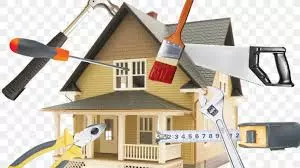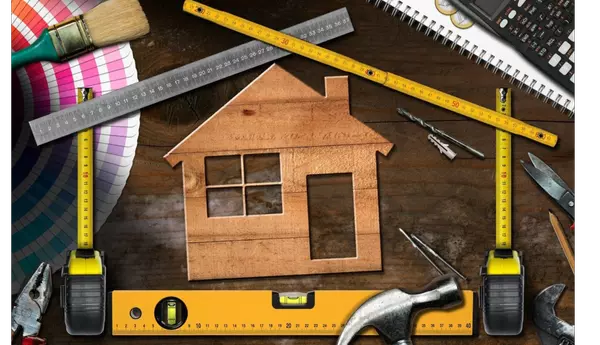
Buying vs Renting
Buying a home and renting both have their own advantages and disadvantages. Here are some pros and cons of each: Pros of Buying: Building Equity: When you buy a home, you are building equity, which is an investment in your future. Over time, your property may appreciate in value, allowing you to build wealth.Stability: Owning a home provides stability and a sense of belonging. You have the freedom to make changes and personalize your living space. Tax Benefits: Homeowners can benefit from tax deductions on mortgage interest and property taxes, which can reduce their overall tax liability. Potential Rental Income: If you have extra space or decide to move, you can potentially rent out your property and generate rental income. Cons of Buying: Financial Commitment: Buying a home requires a significant financial commitment, including a down payment, closing costs, and ongoing maintenance and repairs. Limited Flexibility: Owning a home can limit your flexibility to move, especially if you need to sell quickly or if the real estate market is unfavorable. Maintenance and Repairs: As a homeowner, you are responsible for maintenance and repairs, which can be time-consuming and costly. Pros of Renting: Flexibility: Renting offers more flexibility and allows you to easily move to a different location or downsize without the hassle of selling a property. Lower Upfront Costs: Renting typically requires a smaller upfront financial commitment compared to buying a home, as you only need to pay a security deposit and possibly first and last month's rent. Limited Responsibility: As a renter, you are not responsible for major repairs or maintenance costs, as those are typically the landlord's responsibility. Cons of Renting: No Equity: Renting does not allow you to build equity, as you are essentially paying someone else's mortgage. Rent Increases: Rent prices can increase over time, making it challenging to budget and potentially becoming less affordable. Restrictions: Renting often comes with restrictions on pets, renovations, and personalization. Ultimately, the decision to buy or rent depends on your personal circumstances, financial goals, and lifestyle preferences. It's important to consider your long-term plans and consult with a financial advisor or real estate professional to make an informed decision.

Improvements to Make Prior to Selling
Sellers are wondering what home improvements to make prior to selling a home. People have more time on their hands right now and are wanting to update their homes so they are ready to go on the market. One doesn’t want to put a lot of time and money into improvements that won’t provide a good return on investment. The following 5 improvements will be helpful in selling your home, and be worth the time and money you invest. The kitchen – Obviously, the kitchen is where food is prepared, and people are hypersensitive to the condition it is in. You don’t need to do a complete kitchen remodel to make a big difference. Upgrading countertops, a new faucet, painting or staining cabinets, change the knobs and pulls, maybe add a backsplash, and clean from top to bottom. If the appliances are older, purchase a new appliance package to help make an older kitchen look up to date. The bathrooms – Bathrooms are the other space in your home that buyers are pretty picky about. People are looking for squeaky clean, and up to date bathrooms. Depending on the age and condition of your bathrooms, a new vanity, water saving toilet, new faucets, and new hardware can make a big difference in the impression your bathrooms will make. Lighting – how is the lighting in your home? Out of date fixtures date a home immediately. While you may not see anything wrong with the fixtures from years past, buyers are not going to like them. Installing new light fixtures in your home is an easy way to give a home a fresh and updated look. Appliances – buyers are always concerned about older appliances breaking down. Now would be a good time to shop for deals on appliance packages to replace your older ones. When you are shopping, make sure and look for the energy efficient appliances. While you are at it, install a smart thermostat if you don’t already have one. Buyers are very into smart homes! Paint – If you haven’t painted your home recently, now is the time to do it. While you are de-cluttering, you should be removing photos and other wall hanging items, and holes left behind will need patching anyway. Regardless of your preferences, it is advisable to paint the entire interior in the same neutral shade. Let the new owners add the colors of their choice to the walls when they move in. It’s also advisable to remove wallpaper, and simply paint. If you can, make these improvements prior to selling your home. They are fairly simple and low budget but will make a big difference to buyers who will be looking at your home. Give a call, 320-761-0952, I have tons if ideas that have helped my sellers get premium price when selling. If you want premium price you need to deliver a premium product and I can help you navigate that.

Tips For How to Price Your Home For Sale
Pricing your home correctly is critical to your success as a home seller. If you set your price too low, your home may sell quickly but you may end up without enough money to effectively pay for the cost of a move or a new home. On the other hand, if you set the price too high, your property could sit on the market for months. Here are some guidelines to keep in mind when pricing your home. Your Home’s Original Purchase Price is Not a Factor of Its Current Price No matter how much – or little – you paid for your home when you originally bought it, those figures don’t necessarily have anything to do with the sale you’re about to undertake. The truth is, markets change. Your home might be worth a lot more or a lot less now than when you first purchased it. Not All Improvements Add to the Value of Your Home In fact, many homes are over-improved for their size or neighborhood. While some improvements, such as the addition of extra rooms or a garage, do add value, others are more of a matter of taste and style. Unfortunately, you won’t be able to count on your favorite improvements meaning anything to a prospective buyer. If You Overprice, You Actually May End Up Selling for Less Than Market Value It may sound shocking, but think of it this way: If your home is overpriced, buyers in that price range will likely opt to purchase larger homes in favor of yours. And at the same time, your best prospective buyers may never even get to see your home because they’ll perceive it as out of their price range. In this scenario, your home will end up on the market for much, much longer – adding to your carrying costs – and you ultimately may need to drop the price below market value in order to offload the property. Pricing is the Market’s First Impression of Your Home New listings create excitement in the market, as agents are always eager to find something new to bring to their prospective homebuyers. Because of this fact, your home will get the most activity – and likely its best offers – within the first 30 days of its listing. If you price your home too high, you might miss out on some of your best early-bird prospects. Too low, and you may turn off buyers who could end up looking at your home and wondering if there’s something ‘wrong’ with it. And eventually, your listing becomes old news, even ‘stale’, and over time, overlooked. The good news is, much of this confusion (and its potential consequences) can be easily avoided by asking a real estate agent to perform a Competitive Market Analysis (CMA) for your home, which will give you much better insight into your property’s real value in the current market. If you’d like a Competitive Market Analysis performed for your home, as well as more in-depth guidance on the ins and outs of selling your property, we are happy to help. Feel free to reach out to us any time – we’re always here for you.
Categories
Recent Posts










